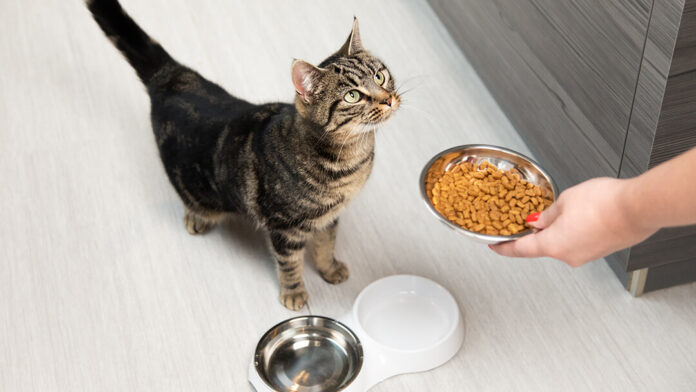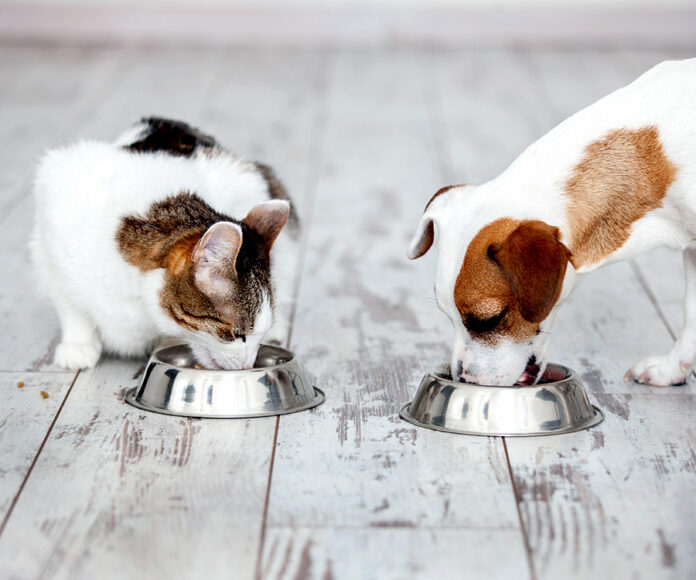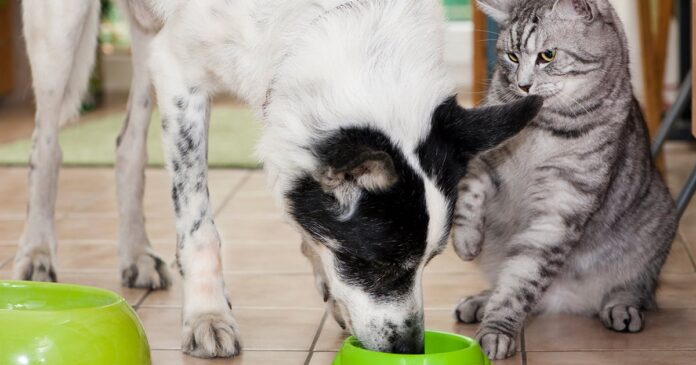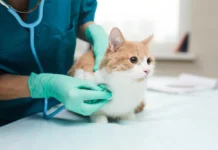Are you worried about serving the right food to your furry family member? Worry no more!
Learn what to look for in pet food and understand your pet’s nutritional needs. With this guide, you can ensure your beloved pup or kitty stays fit and healthy.
Nutrients Essential for Dogs

All pet foods are not created equal. High-quality dog and cat food can be found in a variety of forms, types, and flavors, with specialized nutrition designed to meet the needs and preferences of all kinds of animals. To choose the best food for your pet, you first need to understand how each nutrient contributes to their overall health.
Though dogs require significantly fewer nutrients compared to cats, they contain similar basic dietary requirements such as proteins, fats, carbohydrates, and vitamins. Proteins are needed for body tissue repair, muscle growth, antibody production, enzyme synthesis, and tissue integrity; fats provide energy and essential fatty acids for skin & coat health; carbohydrates supply energy for everyday activity; vitamins & minerals regulate cells throughout the body ensuring healthy bones & teeth; finally, fiber supports digestive system health.
Though most commercial dog food contains adequate amounts of essential nutrients required by all dogs, some breeds may have specific dietary needs that must be addressed accordingly. Regardless of breed or size always ensure a complete balanced diet – providing enough protein from high-quality sources such as eggs or fish meal & vegetable proteins such as legumes or rice to fulfill these needs – based on certified nutritional levels indicated in the package label. In addition, avoid ingredients high in artificial additives like preservative coloring agents or flavor-enhancing ingredients because they do not provide any nutritional value.
Nutrients Essential for Cats

Cats have different dietary requirements than dogs, so pet owners should carefully consider the food they are providing for their feline friends. Cats need nutrients such as protein, taurine, arachidonic acid, and vitamins A and B to stay happy and healthy.
Protein is the most important nutrient in a cat’s diet. Not only does it provide energy, but it also helps build muscles and supplies essential amino acids. Meat-based proteins such as chicken, beef, and fish are especially important for cats since their bodies cannot synthesize these amino acids themselves. Protein sources like egg and dairy products can also give cats a proper balance of nutrients.
Taurine is a type of amino acid that cats are unable to produce in sufficient quantities on their own; therefore, taurine must be obtained from the diet or supplementation in order to ensure adequate levels of this essential nutrient in the body. Taurine plays an important role in maintaining healthy vision, heart function, and many other aspects of physical well-being.
Arachidonic acid is another essential fatty acid that cats need for normal growth and development; it also helps keep skin healthy and hair shiny. Sadly, arachidonic acid has been proven to be deficient in many commercial pet food diets; owners are advised to read labels carefully or consult with their vet before selecting cat food brands that might not contain all the necessary ingredients for optimal health.
Vitamin A is an essential nutrient found naturally in certain kinds of meat that cats need for bone growth while vitamin B helps with digestion, metabolism, reproductive system functioning, and more. Available supplements can make up for any deficiencies encountered through prescription diet plans or on commercially available cat foods not formulated optimally for your pet’s needs; however, continued consultation with your veterinarian is recommended before embarking on any self-administered dietary protocols or supplementation programs.
Tips for Selecting the Right Food

It can be overwhelming to shop for pet food, as there are so many brands, flavors, and formulas to choose from. To make sure you select a safe and nutritionally balanced food for your pet, look for the following features:
- Ingredients
Look for products made with real meats and fish as primary ingredients, grains that provide complete nutrition such as rice or wheat, vegetables that provide essential vitamins and minerals, and healthy fats such as vegetable oil. Avoid products with artificial colors or flavors; these ingredients can cause allergies or other health problems.
- Nutritional Content
Every product should have a guaranteed analysis of minimum crude protein, fat, fiber, vitamins, and minerals; this is important information that helps you compare different foods. It’s also important to consider the levels of essential fatty acids like Omega-3s present in the product; these acids help promote coat health in both cats and dogs.
- Feeding Instructions
Check the product packaging for feeding guidelines based on your pet’s weight; this will tell you exactly how much food to give each day. Portion control is key to maintaining your pet’s healthy weight over time.
- Special Needs
If your pet needs specific support for a health condition like diabetes or allergies look for foods labeled “for medical conditions” which are developed with higher standards of nutritional content than standard commercial foods. Talk to your veterinarian about any additional requirements specifically tailored to meet your pet’s needs.
Benefits of Proper Nutrition

The importance of providing the right balance of nutrients for your pets cannot be overstated. Proper nutrition helps to ensure that your pet will have a strong immune system, healthy skin and coat, healthy teeth and gums, plentiful energy levels, and ideal body weight. All of these things help to keep your pet from becoming susceptible to disease.
Proper nutrition also enables a pet to more readily digest their food, assimilate nutrients from the food more efficiently and absorb more from each bite of their meals. Well-formulated diets provide these benefits as well as reduce allergies, decrease shedding, and promote healthy development in puppies and kittens.
It’s important to understand that not all diets are created equal so it’s worth taking the time to research the various brands you are considering at home or discussing them with your veterinarian or an Animal Nutritionist at your local pet store before making a purchase decision.
Conclusion
Ultimately, finding quality food that best meets your pet’s individual nutritional needs is crucial for maintaining their long-term health. Be sure to consult with a qualified veterinarian, as they are best equipped to determine the nutritional composition of pet food, and can help you identify the highest-quality dog and cat food.
When selecting dog and cat food, it’s crucial to consider specific dietary needs, such as finding the best food for dogs with seizures, which can significantly impact their overall well-being.
If you have any questions or concerns about your pet’s nutritional requirements, don’t hesitate to reach out – it could mean the difference between a healthy and content animal, or one that suffers from nutritional deficiencies.









